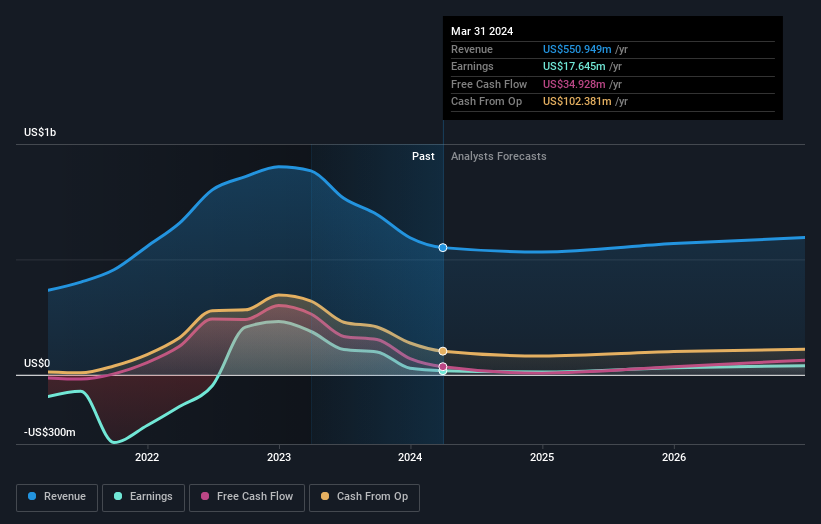What Is LSB Industries, Inc.'s (NYSE:LXU) Share Price Doing?
LSB Industries, Inc. (NYSE:LXU), might not be a large cap stock, but it led the NYSE gainers with a relatively large price hike in the past couple of weeks. While good news for shareholders, the company has traded much higher in the past year. As a stock with high coverage by analysts, you could assume any recent changes in the company’s outlook is already priced into the stock. But what if there is still an opportunity to buy? Let’s take a look at LSB Industries’s outlook and value based on the most recent financial data to see if the opportunity still exists.
Check out our latest analysis for LSB Industries
What's The Opportunity In LSB Industries?
LSB Industries is currently expensive based on our price multiple model, where we look at the company's price-to-earnings ratio in comparison to the industry average. We’ve used the price-to-earnings ratio in this instance because there’s not enough visibility to forecast its cash flows. The stock’s ratio of 35.32x is currently well-above the industry average of 26.59x, meaning that it is trading at a more expensive price relative to its peers. Furthermore, LSB Industries’s share price also seems relatively stable compared to the rest of the market, as indicated by its low beta. If you believe the share price should eventually reach levels around its industry peers, a low beta could suggest it is unlikely to rapidly do so anytime soon, and once it’s there, it may be hard to fall back down into an attractive buying range.
What does the future of LSB Industries look like?
Future outlook is an important aspect when you’re looking at buying a stock, especially if you are an investor looking for growth in your portfolio. Although value investors would argue that it’s the intrinsic value relative to the price that matter the most, a more compelling investment thesis would be high growth potential at a cheap price. With profit expected to grow by 85% over the next couple of years, the future seems bright for LSB Industries. It looks like higher cash flow is on the cards for the stock, which should feed into a higher share valuation.
What This Means For You
Are you a shareholder? It seems like the market has well and truly priced in LXU’s positive outlook, with shares trading above industry price multiples. At this current price, shareholders may be asking a different question – should I sell? If you believe LXU should trade below its current price, selling high and buying it back up again when its price falls towards the industry PE ratio can be profitable. But before you make this decision, take a look at whether its fundamentals have changed.
Are you a potential investor? If you’ve been keeping an eye on LXU for a while, now may not be the best time to enter into the stock. The price has surpassed its industry peers, which means it is likely that there is no more upside from mispricing. However, the optimistic prospect is encouraging for LXU, which means it’s worth diving deeper into other factors in order to take advantage of the next price drop.
So while earnings quality is important, it's equally important to consider the risks facing LSB Industries at this point in time. To help with this, we've discovered 4 warning signs (1 shouldn't be ignored!) that you ought to be aware of before buying any shares in LSB Industries.
If you are no longer interested in LSB Industries, you can use our free platform to see our list of over 50 other stocks with a high growth potential.
Have feedback on this article? Concerned about the content? Get in touch with us directly. Alternatively, email editorial-team (at) simplywallst.com.
This article by Simply Wall St is general in nature. We provide commentary based on historical data and analyst forecasts only using an unbiased methodology and our articles are not intended to be financial advice. It does not constitute a recommendation to buy or sell any stock, and does not take account of your objectives, or your financial situation. We aim to bring you long-term focused analysis driven by fundamental data. Note that our analysis may not factor in the latest price-sensitive company announcements or qualitative material. Simply Wall St has no position in any stocks mentioned.

 Yahoo Finance
Yahoo Finance 
